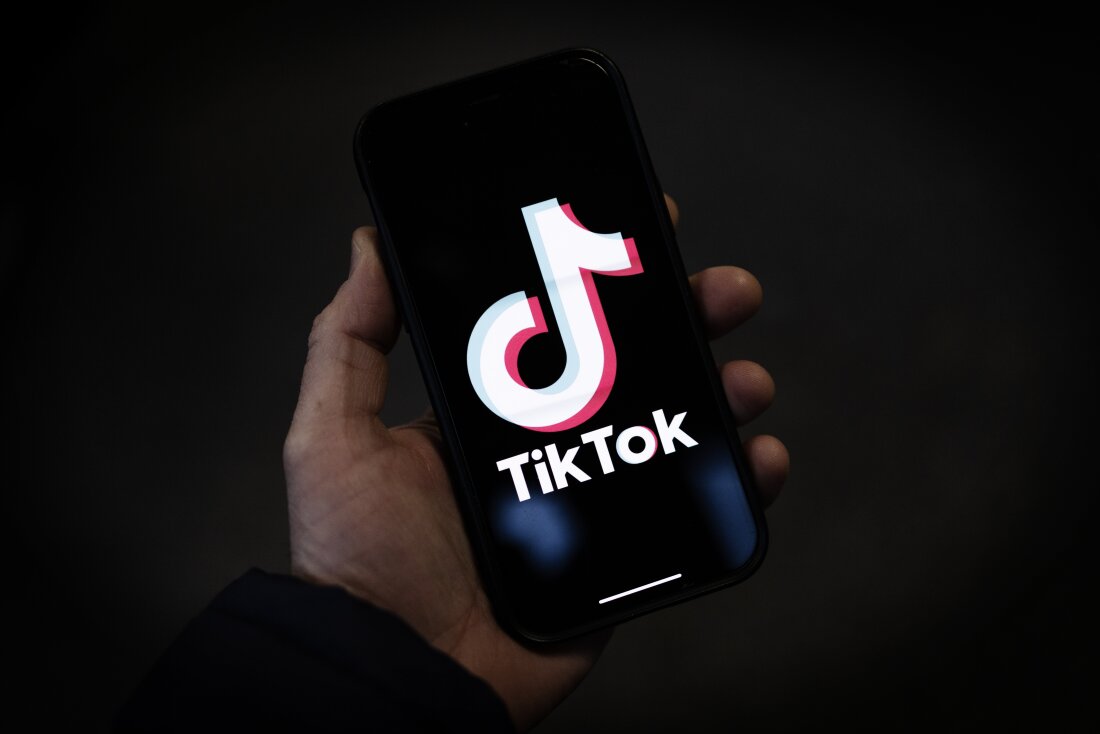Physical Address
304 North Cardinal St.
Dorchester Center, MA 02124
Physical Address
304 North Cardinal St.
Dorchester Center, MA 02124


TikTok’s creators are bracing for a potential shutdown of the app in the US this month unless it is sold to a non-Chinese company.
As tikTok’s shutdown looms, many creators are preparing for life without the popular social media app that serves as news, entertainment, and for some, income.
TikTok will be banned in the US this month unless its owner, ByteDance, is sold to a company outside China.
President-elect Donald Trump asked the Supreme Court to block the law from taking effect — and NPR’s Bobby Allyn reported that “for all the TikTokers who use the app every day, I think it’s fair to say that it’s unlikely to go away anytime soon.”
But the app’s creators are saying goodbye and plan for the app as they know it to disappear in a few weeks.
For some creators, the end of TikTok would mean the loss of their main source of income.
Cora Lakey quit her six-figure jobs in talent acquisition and project management in October — because she could make a living on TikTok.
“I was, I would say, equal to my corporate salary for about three months before I jumped and quit,” Lakey said.
TikTok enabled her to pay off part of her student debt. Unlike a corporate job, becoming a full-time TikTok creator has also given her independence in how she spends every hour of the day.
But she recently saw comments that TikTok’s ban could force influencers like her to “find a real job.”
In TikTok videoshe shot back, “Influencers aren’t out of touch because they’re crying over the TikTok ban. You’re out of touch because you don’t understand that this is a real industry.”
Women have the most to lose: 84 percent of influencers are women, according to a 2024 report. Influencer Marketing Centerwhich monitors the social media industry.
“Some would argue that by shutting down TikTok, they could wipe out the environment 1.3 billion dollars in the revenue of small businesses and creators in the U.S. in just one month,” said Nicol Turner Lee, senior fellow in management studies and director of the Center for Technological Innovation at the Brookings Institution.
“The creative economy is appreciated 250 billion dollars globallyTurner Lee added.
President Biden signed the bill which would potentially ban TikTok, citing threats to national security.
The app collects a lot of personal information from users, and lawmakers say they are concerned about the Chinese government spying on American users or manipulating the platform advance their own interests.
But Adam Aleksić, who goes by the name @etymologynerd on TikTok, doesn’t believe these claims.
“It’s not about China. It’s about the fact that they can no longer control mass communication, which is also visible since the war in Gaza started,” Aleksic said on TikTok. video.
Aleksić echoes a theme that many TikTok users share about the ban.
“The gatekeepers hate this, but they know they can’t stop us from using all social media,” he said. “Instead, they can just try to limit us to the platforms they have the most control over.”

“I’m not worried as much as I’m disappointed,” he said Anna Vatuonewhich teaches people about developing their personal brands online.
Vatuone says he finds most of his clients through TikTok. Ahead of a possible ban on the app, she tells her one hundred and eighty thousand followers to find her on Instagram and Substack.
“The first rule of personal branding is don’t put all your eggs in one basket,” Vatuone said. “Diversify and make sure you’re in a lot of different places because the truth is we don’t own our profiles anywhere.”
Ralph Tyndall posts greeting card making videos to her 1.5 million followers. He’s been a full-time content creator for almost two years now, and says it’s allowed him to leave a tech job that was burning him out.
“I kind of just ignored it, knowing that I didn’t really have any control,” he said of TikTok’s potential ban.
Tyndall used to make about $160,000 a year in his tech job, but now he’s making more as a content creator. He says he’ll be fine without the extra income from TikTok — but he’s more worried about losing the community. He’s been on TikTok longer than any other social media platform and he doesn’t want to lose the followers he’s built up.
“While it’s great to chase metrics, numbers and views, what keeps me coming back is the community,” Tyndall said.
Rishika Vinnakota is a TikTok influencer who posts about her life as a student to her twenty thousand followers. She says she’s “disappointed just because I’ve built a community,” adding that it’s “really hard to get people to follow you from one platform to another, especially if you have a smaller platform.”
Vinnakota has three jobs on campus, but derives most of his income from TikTok partnerships and brand deals.
“It’s kind of sad to go through and relive all my videos and download them and, you know, plan to release them on another platform,” she added.
Vinnakota uses a separate app to download its videos without the TikTok watermark — since videos posted on TikTok cannot be downloaded without the app’s logo.
Although he can upload his TikTok videos to another platform, it won’t be as lucrative. Because she has a large following on TikTok, brands want to work with her — and she doesn’t have nearly as many followers on other social media platforms.
“I mean, all of this could have been handled in a much better way,” she said of the lawmakers who orchestrated the potential ban.
“I’ll still download content, shoot, post, edit. I’ll do whatever I do,” Vinnakota said. “Maybe it’s not on TikTok anymore.”
This story was edited for radio by Barry Gordemer and edited for digital by Treye Green. It was produced by Claire Murashima.